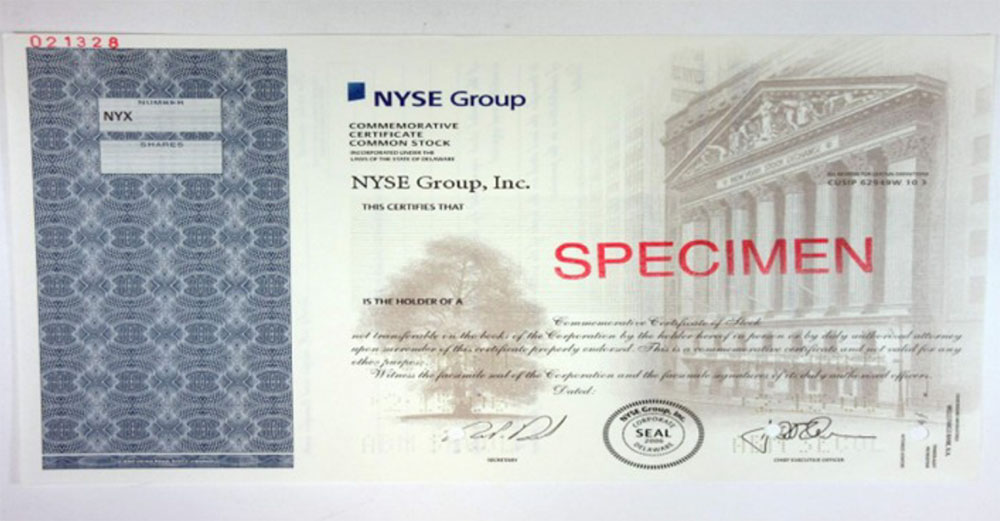July Market Insights: Wall Street Is About To Embrace Crypto, And It’s Not What You Think!
- July 10, 2023
A New Era Is Upon Us
“Nothing is more powerful than an idea whose time has come.” – Victor Hugo
There is an old saying, “never let a good crisis go to waste.” And true to form, Wall Street is capitalizing on the current chaos within the digital asset space. Many will be surprised, but those who take a minute to review how society has historically absorbed innovations will understand that what’s occurring is quite normal. Blockchain’s time has come, and Wall Street is embracing it. Our narrative starts in the Cold War of the 1950s with the birth of a significant technological advancement — the Internet. And while it has become an integral part of daily life, it was not designed to be the global digital economy’s backbone or to settle financial transactions. The Paperwork Crisis on Wall Street in the 1960s demonstrated these limitations and highlighted the need for a more modern and efficient trading system.
Blockchain technology and the digitization of assets had the potential to revolutionize the industry and were used to create new financial instruments like smart contracts and tokens. Consider a world where all private assets are digitized and reside on a Securities and Exchange Commission (SEC)- approved platform, and where assets can be traded and exchanged without the need for physical certificates, titles, or intermediaries.
Like blockchain technology and digitized assets, during the 1990s, Wall Street initially scoffed at email, cell phones, and the Internet. But after some time, the industry recognized technology’s potential to revolutionize money, finance, and the global economy. The evolution of the Internet from a place of distrust to a trusted technology that we cannot live without is a testament to the power of innovation, education, and regulation. Similarly, blockchain must also go through this journey.
While there are challenges and hurdles to overcome, the potential benefits of blockchain are too great to ignore. As society becomes more educated and aware of its potential, expect the emergence of a new era of technological innovation. History has shown time and again that participants in financial markets are willing to recognize innovation’s important role in the efficient allocation of capital required to keep an economy growing. Today is no different.
Blockchain has worked through the distrust and has now entered the acceptance phase.

The Evolution of Wall Street
The Paperwork Crisis on Wall Street in the 1960s resulted from an overwhelming volume of paperwork generated by the manual system used to process trades on the New York Stock Exchange (NYSE). This system often took days or weeks to process transactions as it involved paper certificates to represent ownership of stocks. Stocks and bonds were in bearer form and often led to delays and errors in the processing of trades.
The short-term fix? Trading was reduced to four days a week and four hours a day. The additional cost required to clear trades caused a wave of brokerage houses on Wall Street to close.
Evidently, a faster, more modern and efficient trading system was needed. New technologies, like the centralized tape system and designated order turnaround (DOT) system, and were introduced and converting assets into street names also helped address some of the issues. Still, it emphasized the need for a more modern and efficient trading system. The result was the formation of the Nasdaq.
This evolution resulted from necessity and technological advancements. And the introduction of the Internet enabled the industry to become even more global in nature and interconnected in ways like never before.
Adopting blockchain could further revolutionize the industry because digital assets can be traded and exchanged instantly and programmed to execute complex financial transactions automatically. They can be used to create new financial instruments, like tokens and smart contracts, which are self-executed when certain conditions are met. Regulatory changes have also influenced the evolution of our financial system. The Global Financial Crisis (GFC) of 2008 highlighted the need for better control and oversight of markets, and blockchain can help.
The old saying is, “never let a good crisis go to waste.” With regulatory gaps shown by the SEC’s crackdown on crypto exchanges, Wall Street has stepped up efforts to embrace and innovate using blockchain.
The Innovative Process from Distrust to Acceptance
What started as a tool for academic research and communication quickly evolved into a global phenomenon that changed the way we live, work, and interact with each other. However, the Internet’s early days were plagued by distrust and skepticism, with many questioning its usefulness and safety. The same can be said of blockchain technology in the 2020s.
Blockchain is one of the latest technologies to capture the world’s attention, promising to revolutionize the finance and healthcare industries. However, like the Internet, its early days were marked by distrust and skepticism.
Nobel Prize-winning economist Paul Krugman stated in 1998 that by 2005 it would become clear that the Internet’s impact on the economy would be no more significant than the fax machine. As the global economy continues to transition from analog to digital, and as society decentralizes, Mr. Krugman’s statement is a cautionary tale of what happens when investors fail to see innovation as a natural evolutionary process. History repeatedly reminds us that technological revolutions follow a natural process from distrust to acceptance. Some suggest this has been wired into our DNA throughout time. Therefore, innovation will eventually be accepted – if it has the staying power.
Today, investors are dealing with the twin forces of artificial intelligence (AI) and blockchain, and as Victor Hugo suggests, their time has come. With Wall Street now embracing blockchain, markets are about to change radically.
It is worth noting that this is not an endorsement of the attractiveness of Bitcoin as an investment. On the contrary, Wall Street is embracing the innovative aspect while providing a regulated environment for those who want to trade this asset class. This is no different than delivering investors a safe, regulated environment to sell shares of their favourite multinational corporation or government bond.
The Internet and its Limitations
The Internet was developed in the 1950s by the United States Department of Defense to connect different research centers and universities. The goal was to create a network that could withstand a nuclear attack and continue to function. The first message ever sent over the Internet was from UCLA to Stanford University.
As the Internet grew in popularity, it became clear that it had limitations. It was not designed to handle the volume of transactions within the global digital economy. It also required greater security for handling sensitive financial transactions.
Blockchain technology is often described as the next generation of the Internet, promising to revolutionize industries and transform how we live and work. And as previously mentioned, like the Internet, blockchain’s early days were marked by distrust. One of the main reasons for this is its association with cryptocurrencies, which have been the subject of numerous scams and hacking attacks. Additionally, the complexity of blockchain technology has made it difficult for many people to understand, leading to misconceptions and skepticism.
While there are challenges and hurdles to overcome, the potential benefits of blockchain are too great to ignore, which is why Wall Street is finally taking the big plunge to enhance the efficiency and transparency of capital markets.
The Blockchain Solution and Digitization of Assets
Blockchain is a decentralized ledger that allows for secure and transparent transactions. It is the technology behind cryptocurrencies like Bitcoin and Ethereum.
The evolution of the Internet from a distrusted technology to a trusted and indispensable tool was a long and complex process. It required the development of new technologies and regulations, as well as education and awareness campaigns to help people understand the benefits and risks. Similarly, blockchain must undergo the same journey, which requires time, effort, and education. There are already signs that it has begun.
What Should Investors Do?
BlackRock, the world’s largest asset manager, has embraced the tokenization of assets as a significant secular theme. According to the company’s CEO, Larry Fink, adopting blockchain technology and tokenization will fundamentally change how financial assets are managed and exchanged globally.
The company’s embracement of tokenization is a significant shift from its initial skepticism toward cryptocurrencies and blockchain technology. In 2017, Mr. Fink famously called bitcoin a “very speculative instrument used for money laundering. In 2018, he said BlackRock clients had “no interest” in cryptocurrencies. However, the company has since changed its stance to become increasingly interested in blockchain technology and its potential applications in finance.
In a recent interview, Mr. Fink stated that he sees blockchain as a “real technology” that will “reshape the way we do business.” BlackRock’s interest in tokenization is common. Many financial institutions and corporations are exploring using blockchain technology and digital tokens to improve efficiency and reduce costs. For example, JPMorgan Chase has created its digital currency, called JPM Coin, for use in its wholesale payments business. Fidelity, Charles Schwab, Citadel, and Wisdom Tree, as well as the NYSE and the Nasdaq, are a few of the Wall Street institutions that are beginning to embrace the digitization of assets.
To be sure, the tokenization of assets has long been touted as one of the top use cases for blockchain. BlackRock iShares Core S&P 500 ETF (CSPX) has been turned into a token on the Ethereum network and can be traded on Uniswap. For every token created, a share of the ETF is purchased and deposited with Maerki Baumann & Co, a regulated custodian.
One can’t understate the importance of BlackRock’s leadership in moving this evolutionary process forward. Deutsche Bank has applied to operate a regulated custody platform for crypto. Fidelity has been leading the digital asset space for almost a decade. More are sure to follow. Blockchain technology has entered a new phase; the era of acceptance by Wall Street.
Investors best pay attention.
